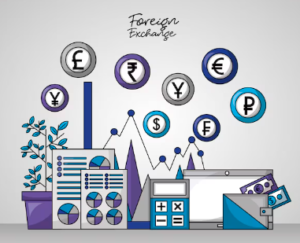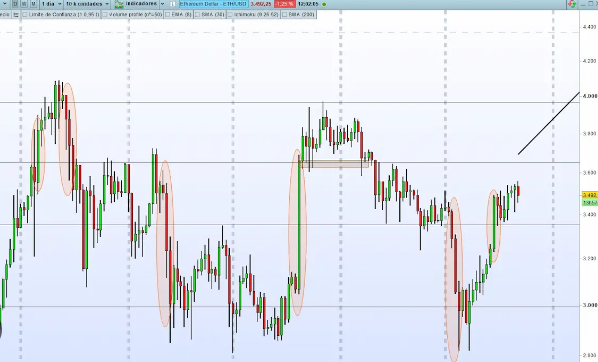A Clear Outline of Foreign Exchange Policies
Foreign exchange policies play a crucial role in shaping a country’s economic landscape. These policies determine how a nation’s currency is valued, traded, and controlled in the global market. The decisions governments make regarding foreign exchange can significantly impact inflation, economic growth, and international trade. Understanding how foreign exchange policies work helps both businesses and individuals navigate the complex world of global finance.

What Are Foreign Exchange Policies?
Foreign exchange policies refer to the rules and regulations that govern a country’s currency transactions with other nations. These policies include decisions about exchange rates, currency reserves, and controls on foreign currency inflows and outflows. Countries can adopt different approaches depending on their economic goals, ranging from flexible exchange rates to tightly controlled currency regimes.
Types of Exchange Rate Systems
There are several exchange rate systems that countries use to manage their currencies:
- Fixed Exchange Rate – In this system, a country’s currency value is tied or “pegged” to another major currency, such as the U.S. dollar or gold. This provides stability in international trade but limits a country’s ability to adjust to economic changes.
- Floating Exchange Rate – Here, the currency’s value is determined by market forces, meaning the currency can fluctuate freely based on supply and demand. This system allows for more flexibility, but it can lead to instability during periods of economic volatility.
- Managed Float – Also known as a “dirty float,” this system allows the currency to float according to market forces but with occasional intervention from the central bank to prevent excessive fluctuations.
Impact of Foreign Exchange Policies on Trade
Foreign exchange policies have a direct impact on international trade by influencing the cost of imports and exports. A strong currency makes imports cheaper but can hurt export competitiveness, while a weaker currency makes exports more attractive but increases the cost of imports. Governments use foreign exchange policies to balance these trade-offs and promote economic growth.
Currency Devaluation and Competitiveness
When a country devalues its currency, it lowers the value of the currency relative to others. This strategy can boost exports by making them more affordable on the global market, but it also makes imports more expensive, which can lead to higher inflation. Countries often use devaluation as a tool to increase competitiveness, especially during economic downturns.
Diversifying Online Opportunities for Smart Traders
At FX Navi, we guide traders through the complexities of forex and financial markets, emphasizing tools that enhance strategy and decision-making. Beyond traditional trading, some users explore online entertainment as part of a balanced digital experience—options like this no deposit bonus australian casino allow for safe, risk-free exploration. Understanding various digital platforms supports smarter engagement and personal growth. Whether in forex or leisure, informed choices lead to better outcomes.
Trade Deficits and Surpluses
Foreign exchange policies also influence a country’s trade balance. A trade deficit occurs when a country imports more than it exports, while a surplus occurs when it exports more than it imports. By adjusting foreign exchange rates, countries can attempt to correct trade imbalances. However, frequent manipulation of currency values can lead to tensions with trading partners and might result in retaliatory measures like tariffs or sanctions.
Government Intervention in Foreign Exchange Markets
Governments and central banks sometimes intervene in foreign exchange markets to stabilize their currencies or achieve specific economic objectives. These interventions can take the form of buying or selling currency, adjusting interest rates, or imposing capital controls.
Central Bank Currency Interventions
One of the most common forms of intervention is when a central bank buys or sells its own currency to influence its value. For example, a central bank may sell large amounts of its currency to devalue it and make exports more competitive. Alternatively, it may purchase its own currency to increase its value and reduce inflationary pressures.
Capital Controls and Their Role
Capital controls are measures used by governments to restrict the flow of foreign capital in and out of the country. These policies can include limits on foreign investment, restrictions on currency exchanges, or taxes on certain financial transactions. Capital controls are often used to stabilize a country’s currency during times of economic uncertainty or to protect it from speculative attacks.
Strategic Analysis in Digital Environments
Just as navigating forex markets requires keen analysis and strategic decision-making to manage risk and pursue opportunities, understanding the dynamics of various digital platforms is paramount. FX Navi empowers users with tools and knowledge for informed choices in complex financial landscapes. This strategic mindset is also key when exploring engaging online entertainment, such as with a stellarspins casino online, where calculated decisions shape the experience.
The Role of International Organizations
International organizations like the International Monetary Fund (IMF) and the World Bank play a key role in advising and monitoring foreign exchange policies. These institutions offer financial assistance and policy recommendations to countries facing currency crises or seeking to reform their foreign exchange systems.
The IMF’s Role in Exchange Rate Stability
The IMF monitors global exchange rate policies to promote stability in the international monetary system. Countries experiencing difficulties with their exchange rates can seek help from the IMF, which provides financial support and policy advice. In return, these countries often need to implement reforms to improve economic stability.
World Bank Assistance for Developing Countries
The World Bank also provides financial assistance to developing nations looking to stabilize their economies. While its focus is broader than just foreign exchange policies, it helps countries implement policies that support sustainable economic growth and stable exchange rates.
Risk Management and Financial Market Analysis
Successful Forex trading demands rigorous technical analysis, disciplined risk management, and constant monitoring of global economic indicators. Traders must be able to assess probabilities and manage capital efficiently to navigate volatile currency markets. The methodology for evaluating risk is a universal concept across all financial endeavors, from complex international trading to analyzing comparative data for services like the bestusabettingsites usa sports betting sites usa. Prudent analysis and risk control are the cornerstones of all successful investment strategies.
Challenges and Risks Associated with Foreign Exchange Policies
Despite their importance, foreign exchange policies are not without risks. Poorly managed policies can lead to economic instability, inflation, and currency crises. Additionally, overly aggressive interventions or frequent changes in policy can erode investor confidence and lead to capital flight, where investors move their money out of the country to avoid losses.
Currency Crises and Economic Instability
A currency crisis occurs when a country’s currency depreciates rapidly, often due to a loss of confidence in the country’s economic management. This can lead to skyrocketing inflation, a collapse in the banking system, and widespread economic turmoil. Countries with weak foreign exchange policies are more vulnerable to these crises, especially if they rely heavily on foreign capital or imports.
The Risk of Hyperinflation
Hyperinflation is another risk associated with mismanaged foreign exchange policies. If a country prints too much money or devalues its currency too quickly, it can lead to runaway inflation, where prices increase dramatically, and the currency loses value at an unsustainable rate. Hyperinflation can have devastating effects on an economy, wiping out savings and causing widespread poverty.
Understanding foreign exchange policies is crucial for navigating global markets effectively. For those looking to diversify their financial strategies, exploring various international platforms can provide valuable insights. Many investors find that reviewing reputable comparison sites helps in making informed decisions. A resource like bestaubettingsites offers comprehensive analyses that complement forex policy research. This approach ensures a well-rounded perspective on international finance. Integrating such tools can enhance your overall market understanding. Always verify information from multiple trusted sources. Staying informed is key to successful foreign exchange engagement.
Conclusion: The Importance of Effective Foreign Exchange Policies
Foreign exchange policies are a critical component of a country’s economic framework. They impact trade, inflation, and economic growth and can shape a nation’s position in the global market. While these policies offer tools for stabilizing economies and promoting growth, they must be managed carefully to avoid the risks of instability and inflation. By balancing currency controls, market forces, and international cooperation, countries can create foreign exchange policies that support long-term prosperity.












